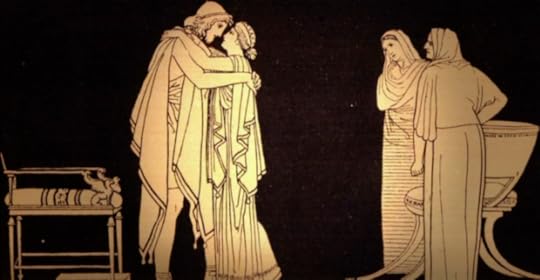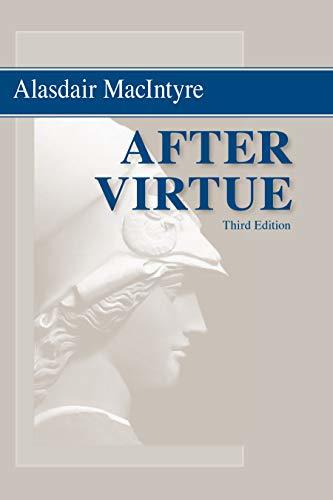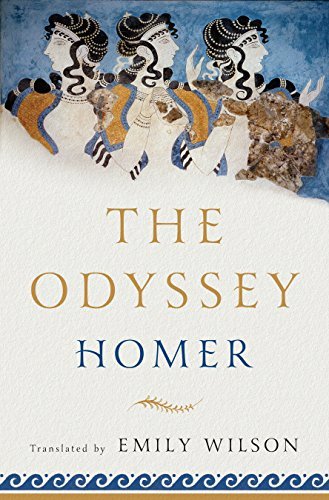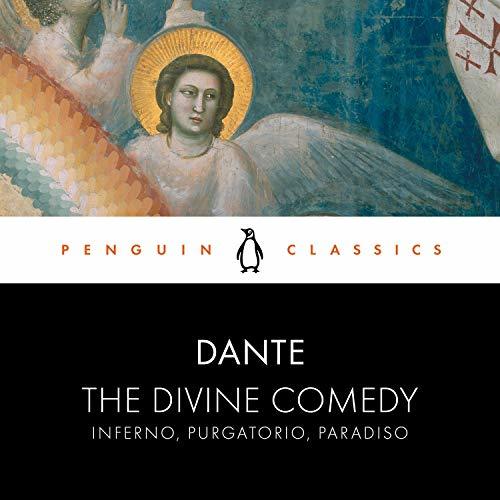Going on a Quest!

At one point midway on our path in life,
I came around and found myself now searching
through a dark wood, the right way blurred and lost.
... My theme will be the good I found there.
— Dante Alighiere, Inferno
Escape into the stories about people who go places (while we cannot!) and explore role of narrative in developing virtue… listen below!
I often find myself accidentally reading around a theme. I don't know if this happens subconsciously (I read one theme, and my subconscious sets about being attracted to other similarly themed readings), of if it is the product of what one of my friends calls "book providence." Lately, my theme has been that of quest, journey, pilgrimage, and the secondary theme of lostness.
Recently, I’ve been listening to the audible version of the Odyssey narrated by Ian McKellan, i.e. Gandalf. I have been enjoying this thoroughly, especially as it is a classic and I have no memory of reading it (though my mother swears we did when I was a youngster). The premise of the story is that Odysseus's journey homeward. We begin the story when he has already been away a long time, long enough for his only son to have grown into a man. In the opening Athena complains to Zues that Odysseus is a good man, and that he should be allowed to return to his family, and that they should help him. But will Odysseus find his way home? And will his wife have been faithful for all these years? We hold our breath and read on.
The theme of journeying, of setting out to reach a destination or retrieve some treasure, or best of all, to make it home, is one of the most popular in literature. There's the Exodus in the Old Testament, Dante's Comedia, Lord of the Rings, Gulliver's Travels. Common to many of these is the idea of a quest, a word which gives us our word "question"; the traveler, the pilgrim, the wayfarer seeks something, somewhere, some answer. The story shapes itself around the pursuit of that thing, the trials that frustrate the success of the quest. So powerful is this literary trope, that Saint Augustine used it to describe the Christian life as a pilgrimage, straining for a destination they cannot reach in life. In doing this, he draws from Hebrews 11:
All these people were still living by faith when they died. They did not receive the things promised; they only saw them and welcomed them from a distance, admitting that they were foreigners and strangers on earth... If they had been thinking of the country they had left, they would have had opportunity to return. Instead, they were longing for a better country—a heavenly one. Therefore God is not ashamed to be called their God, for he has prepared a city for them.
This week I also began re-reading Dante's Comedia, a traveler's tale which ends up in the highest courts of heaven. What I love about both the Comedia and the Odyssey is that they begin in the middle of the quest ("midway on our path in life" as Dante puts it); Odysseus trapped on an Island, Dante trapped and terrified in a mysterious wood. They're mired, confused, tired, not convinced they're actually going anywhere, that Odysseus will ever make it home, that Dante will make it to heaven. The primary mood is one of perplexity and weariness. What i also love is Dante's assurance that it was in the very midst of this confusion that his soul began to learn the lessons he would need to reach heaven; "My theme will be the good I found there." The good he found in the dark wood, when his soul was lost, and the way toward the straight path was blurred.
I don't know about you, but I feel like we have officially reached the midway point of this strange season. I've reached the end of the novelty, and I've given up thinking there will be a clear or easy end to this quarantine. Trying to make plans about when to submit my Phd, or where to live this fall, or how to plan the coming weeks, can feel like the dream state of Dante, wandering around the woods, a little tired, and wondering where the end will be. But I'm comforted by Odysseus and Dante and the men and women of Hebrews, because it was in the midst of the mire that they were being most brave.
For the last tutorial of the Christian Ethics course I taught, we read the last chapter of Alasdair MacIntyre's excellent book After Virtue. In it, he seeks to define what gives life a "unity" a sense of coherent purpose and beauty. In short, what the "good life" is. I would summarize his answer like this: Seeking the Good in community, and virtues are things which sustain us in our pursuit of the good in community. For MacIntyre, a Roman Catholic, the Good is God, toward whom we strain with our whole being to be in union with, but just like the faithful people of Hebrews, the completion of our journey is out of sight in this world. The Good Life, then, is journeying toward God in community (the church), and becoming virtuous person is developing what strengths you need for the journey. It's a beautiful vision, but it also reminds us: most of life, therefore, happens in the "dark wood." We do most of our becoming in the dark wood. And if we keep pressing through toward the good we cannot see, we develop the muscles to become a pilgrim as courageous as Dante, Odysseus, Beatrice.
Quest Narratives… Begin with the end in mind…
Involve Companions for the journey…

Finds its culmination in homecoming…


After Virtue: A Study in Moral Theory, Third Edition
By MacIntyre, Alasdair

The Odyssey
By Homer

The Divine Comedy: Penguin Classics
By Robin Kirkpatrick, Dante Alighieri
Joy Marie Clarkson's Blog
- Joy Marie Clarkson's profile
- 227 followers



